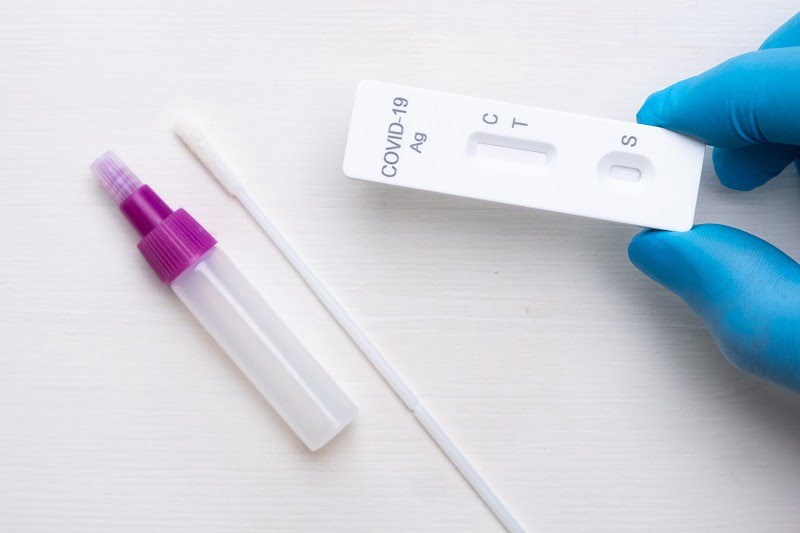
As COVID-19 restrictions ease and employees return to the workplace, those opposing their employer’s directions to be vaccinated have argued that rapid antigen testing (RAT) should be allowed as a substitute for vaccination.
Employers have a duty of care to provide a safe workplace. Under work health and safety (WHS) legislation, this includes reducing the risk of injury or illness.[1] As knowledge of COVID-19 increases, more is expected to be done to mitigate its risks.[2]

Under WHS law, persons conducting a business of undertaking (PCBUs) – such as an employer or business – have a duty to eliminate, or at least minimise, the risk of COVID-19 in the workplace. PCBUs must implement control measures to reduce this risk as far as is reasonably practicable.[1]
The COVID-19 vaccination is the most effective way to protect against the virus by preventing or reducing symptoms. However, according to Safework NSW, as a fully vaccinated person can still contract or transmit COVID-19, vaccination is only one aspect of keeping workplaces safe. PCBUs must continue to apply other COVID-19 control measures, such as physical distancing, good hygiene, regular cleaning and PPE.
To avoid a safety compliance breach and the risk of prosecution or large fines, employers should consider these precautions seriously before workers return to the workplace.[2]
NSW Health recommends a range of measures to promptly identify cases of COVID-19 and prevent transmission, including RAT and conventional laboratory point of care (PCR) testing.
____
[1] Para 2.24 of Managing COVID-19 risks in the workplace
[1] Para 1.6 of Managing COVID-19 risks in the workplace
[1] https://www.safework.nsw.gov.au/resource-library/COVID-19-Coronavirus/covid-19-vaccination
[1] NSW Government, ‘Increased Compliance Operations for COVID-19 Safe Workplaces’, Media release, 19 July 2021.
What is Rapid Antigen Testing?
Rapid antigen testing is a screening test that can identify COVID-19 early, often before symptoms appear.
The test involves taking a nasal swab and placing it into a chemical solution. This can be performed easily onsite, with results available within 15 minutes. Alternatively, an employee can self-test at home.

When to Use Rapid Antigen Testing
NSW Health recommends RAT as an additional control measure but not as an alternative to vaccination. However, for persons who cannot be vaccinated, such as those with a medical contraindication certificate, RAT may be used by employers to mitigate risks.
While the ideal frequency of RAT is daily for full-time workers in a high-risk workplace, this could prove costly for businesses.
NSW Health recommends RAT be used at least two to three times a week as a screening test but not as a diagnostic test.
In general, it is likely to be lawful and reasonable for an employer to require RAT as a condition of entry to the workplace. If an employee refuses to be tested, an employer will need to consider the worker’s specific circumstances on a case-by-case basis.
A worker who receives a positive RAT result can be prevented from entering the workplace and directed to undergo a PCR test to confirm whether COVID-19 is present.
When Not to Use Rapid Antigen Testing
According to NSW Health, if a person has flu-like or COVID-19 symptoms, or is identified as a close or casual contact, a PCR test, rather than RAT, should be used.
Routine retesting of someone who has recovered from the virus and completed their home isolation is not recommended, as the results may remain positive despite no ongoing risk of transmission.
If a person is required to undergo COVID-19 surveillance testing under any current NSW public health orders, a letter from NSW Health may be used for an exemption for up to three months from the date the person tested positive.
How We Can Help!
If you are interested in implementing RAT in your business or have workers who refuse to be tested and follow safety protocols, we suggest you get in touch with us. We can guide you through this complex area of law.
___
[1] Professor Mary-Louise McLaws, Professor of Epidemiology, Hospital Infection and Infectious Disease Control, UNSW.











